Accutane is a medication that is often prescribed to people who have severe acne.
It can be very effective in clearing up skin lesions, but it does have some potential side effects, including dryness, peeling, irritation, and sensitivity.
Additionally, one of the main concerns for people using the medication is whether Accutane can cause hyperpigmentation, which usually manifests itself as dark patches or spots on the skin after a pimple has healed.

What is Hyperpigmentation, and What are the Causes?
Hyperpigmentation is a condition that can cause the skin to become darker or patchy in color.
It occurs when there is an excess of melanin, which is the pigment that gives skin its color.
There are many different causes for hyperpigmentation, including sun exposure, acne, injury or trauma to the skin, as well as hormonal conditions such as melasma.
Hyperpigmentation is usually triggered by inflammation, which causes the melanocytes to go into overdrive and produce excess melanin to contain the infection.
The uneven melanin deposit gets transferred into keratinocytes (skin cells) which then travel to the surface and manifest the irregular melanin deposits as hyperpigmentation in certain areas where the inflammation occurred (such as where the pimple was.)
How is Hyperpigmentation Treated?
Hyperpigmentation can be very challenging to treat, and this is why it’s best to prevent it from occurring in the first place as best as you can.
Some ways to prevent hyperpigmentation are using high SPF every day, minimizing sun exposure during peak heat hours in summer (11 am-4 pm), and having a skincare regimen that will keep your skin healthy and free from inflammatory conditions that can cause hyperpigmentation, such as acne.
Additionally, there are a number of ways to treat hyperpigmentation once it’s present.
Some treatments include topical skincare products that contain melanin-inhibiting ingredients, laser treatments, IPL, and medium to deep chemical peels.
Can Accutane Cause Hyperpigmentation and How to Prevent it?

Accutane alone is unlikely to cause hyperpigmentation because it decreases inflammation and acne, which is the opposite of what triggers hyperpigmentation.
However, some people are likely to experience hyperpigmentation after using Accutane because although the medication will reduce active acne, it won’t fade hyperpigmentation.
This means that the hyperpigmentation left on the skin after Accutane results from acne, not from the medication itself.
With that said, there are ways to protect your skin from hyperpigmentation and minimize or completely fade this pesky occurrence.
Some of them include applying and reapplying high SPF multiple times throughout the day, especially if you are exposed to the sun, as well as using mild topical treatments that contain melanin-inhibiting ingredients.
Getting intense professional treatments while on Accutane isn’t recommended; therefore, if your hyperpigmentation persists despite using topical treatments, you would have to wait for a few months post-Accutane to be able to do something like laser or deeper chemical peels.
How Long Does Hyperpigmentation Take to go Away?
Hyperpigmentation can linger around for a long time after inflammation has subsided.
For example, after a mild pimple, hyperpigmentation could last for a few weeks to a few months, while hyperpigmentation after a deeper cyst could stick around for months and even years.
Lastly, hyperpigmentation that occurs as a result of sun damage or hormonal conditions such as melasma is likely to stay for years unless treated professionally and protected with daily use of sunscreen.
Best Ingredients for Hyperpigmentation
Here are the best ingredients for hyperpigmentation that you can use while on Accutane:
Niacinamide
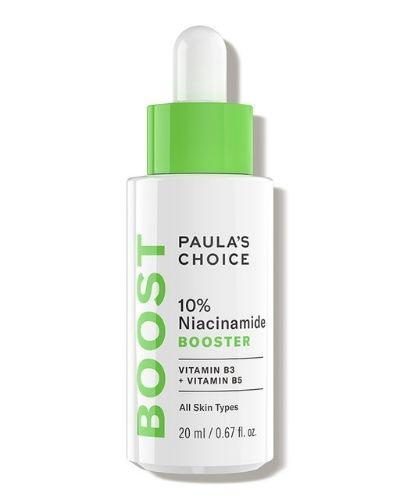
Niacinamide or vitamin B3 is a great ingredient for fading hyperpigmentation, reducing post-acne redness, and even improving skin texture.
But besides being effective for acne scars, niacinamide is also one of the gentlest anti-inflammatory and anti-acne ingredients.
Niacinamide can help reduce or completely prevent acne in some cases by inhibiting lipids in our sebaceous glands that contribute to acne formation while at the same time increasing ceramides which help the skin maintain optimal hydration levels.
Niacinamide also strengthens the skin barrier and helps the skin deal with inflammatory conditions better.
Lastly, niacinamide is a very gentle ingredient that can be used while on Accutane.
Azelaic Acid
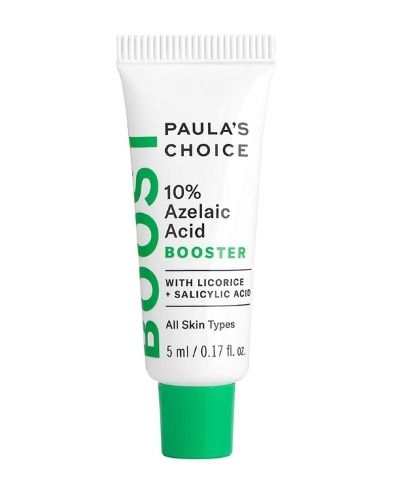
Azelaic acid is an ingredient found in over-the-counter and prescription products.
This ingredient is naturally found in wheat, rye, and barley, but it can also be synthetically made in a lab, which is the kind used in skincare products due to its effectiveness and stability.
Azelaic acid can diminish the appearance of skin blemishes, fade post-acne redness and hyperpigmentation, refine the skin’s surface, and reveal a brighter and more even complexion, among other actions.
This ingredient is very gentle, and it’s generally well tolerated by all skin types, including sensitive and compromised skin as well as excessively dry and irritated skin that’s going through an intense medication such as Accutane.
It’s also one of the best ingredients for people dealing with rosacea as it helps relieve some of the symptoms, such as pustules and excessive redness, without irritating the skin.
Vitamin A
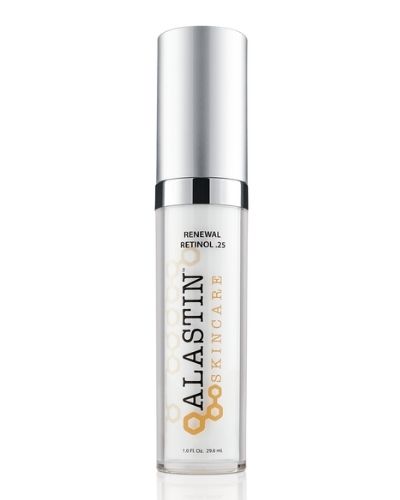
Vitamin A is a powerful antioxidant that can help reduce inflammation by strengthening the skin barrier and helping it deal better with potential irritants.
Additionally, vitamin A derivatives such as retinol increase cellular turnover, which helps promote a clearer, brighter, and more uniform complexion.
Retinol has also been found to reduce post-inflammatory hyperpigmentation and post-inflammatory redness, which is a challenging condition to deal with, with not many over-the-counter treatments available.
There are some concerns about using retinol while on Accutane, and while some stronger alternatives could potentially be irritating, a 0.25% over-the-counter product combined with other nourishing ingredients should be just fine.
Arbutin
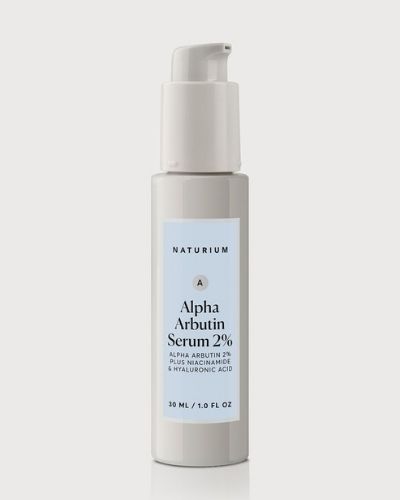
Arbutin is derived from the leaves of fruits such as bearberry (uva-ursi), pear, and cranberry, and it is also made synthetically and added to skincare products.
Arbutin can be used as a topical skin lightening agent for treating hyperpigmentation.
It is categorized as a plant extract and tyrosinase inhibitor, meaning it inhibits uneven melanin production and regulates uneven melanin deposit.
Arbutin is also a mild and gentle ingredient that can be used while on Accutane alongside other nourishing and anti-inflammatory ingredients.
RELATED: Best Facial Serums For Textured Skin.
Kojic Acid
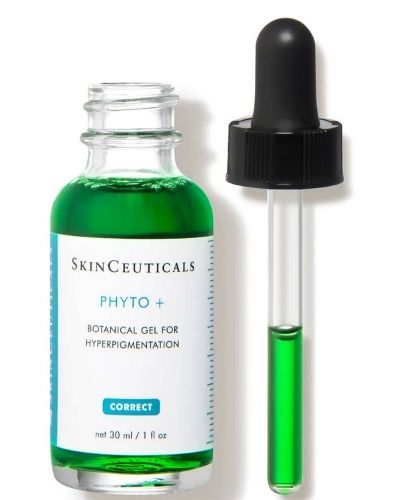
Kojic acid is another excellent ingredient for hyperpigmentation, and it’s usually found in soaps and serums alongside other brightening ingredients such as tranexamic acid.
Kojic acid works simply by blocking tyrosinase, which is the enzyme that forms the brown pigment melanin in the deeper layers of your epidermis.
Because of its ability to penetrate the layers of your skin, kojic acid blocks this process by sitting in the active site of tyrosinase, leaving no space for the amino acid tyrosine.
Kojic acid is usually sought as a spot-fading or pigmentation and melasma treatment. It is a somewhat less aggressive option than hydroquinone, making it a better option for sensitive skins.

My name is Simone and I am a certified skin specialist. I created this website to teach my readers how to take great care of their skin and I also like to occasionally share my honest opinions on skincare products I’ve tried. You can learn more about me here.
